Yii Vs Zend Vs Laravel Vs Symfony Frameworks, which is the Best Emerging Platform for PHP in 2017?
27 May 19 

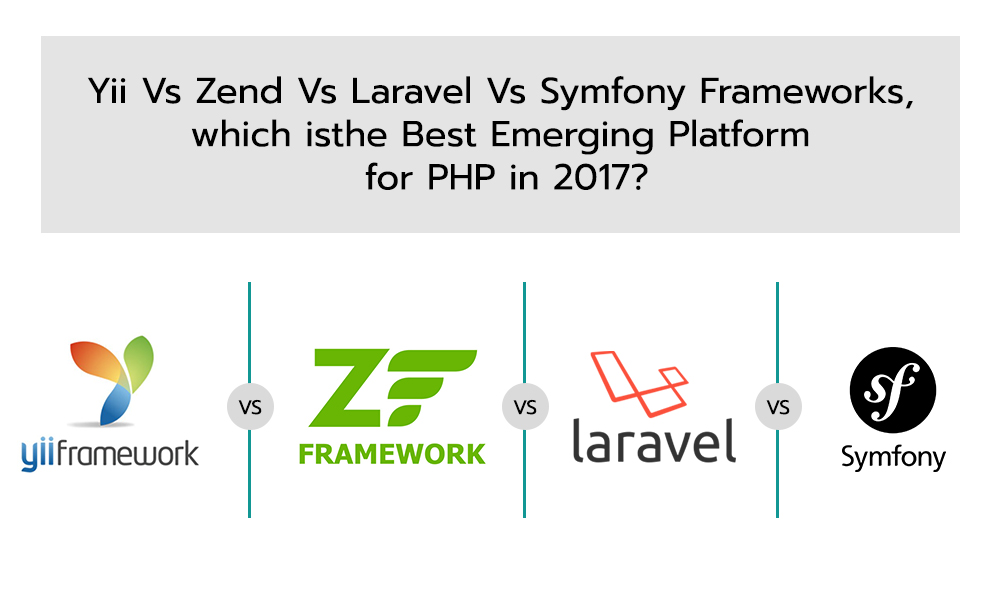
What if I say that PHP manages to run more than 80% of websites globally? Yeah! You heard it right. Apart from being an open source language, PHP offered a learning curve to the developers along with a host of features which made it the most popular language in the world (with server-side programming).
PHP came to existence way back in 1995 as a server-side scripting language for web development.
Today, we can definitely say that PHP dominates the server-side web development. Major companies and websites like Facebook, Wikipedia, Magento, and WordPress etc. are built on PHP framework and is used by companies for their major projects.
Designing and developing an effective and high-quality website quickly was always a hard task for developers and the complexities increases when the website gets updated on a regular basis. However, PHP supports web solutions and helps in easy implementation.
Advantages of using PHP:
- Quick development with the help of libraries and tools offered within the framework.
- Simple to redesign and maintain
- Excellent community support
PHP has many frameworks under its hood helping the developers to simplify the web development by offering more secure and versatile policies eventually reducing the complexity of coding. In this blog, let’s take a look at the 3 most popular frameworks of PHP: Yii, Zend, and Laravel. We will evaluate each of them to help you decide which might best fit your needs.
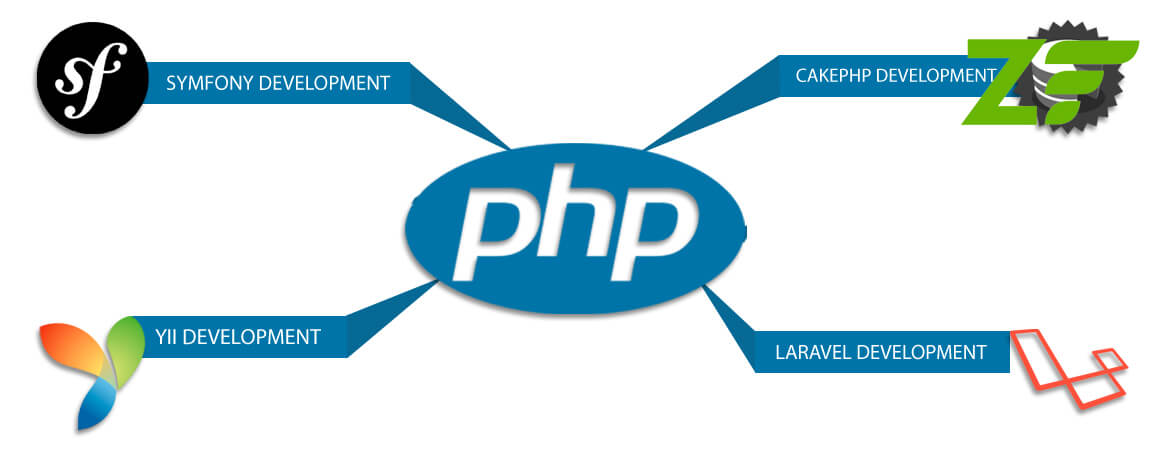
How to choose a PHP Framework?
You have to understand the requirement in detail before choosing a framework for your project. The main among them are listed below:
- Features and functionality of a framework
- Security highlights
- Documentation
A Brief introduction of Yii, Zend, Laravel, and Symfony
Yii
Yii was developed in 2006. Yii provides a fast, high performance and secure web development framework that enables developers to create forums and web-portals in a short period of time. Since Yii is equipped with JQuery integration, it becomes easy for front end developers to manage the whole framework. Yii was overtaken by Laravel in 2008 but they bounced back after the release of Yii 2.0 as it became hit among developers.
Zend
Zend is a much sophisticated and robust framework and is primarily used to build large and powerful web apps. Zend is recognized as a trusted PHP framework. Zend can’t be underestimated and is used to develop high end applications. Zend incorporates various customization features and is excellent at documentation.
Laravel
Laravel also known as “PHP framework for Web Artisans” is the most popular and used framework in PHP. Laravel has got excellent community support and is quick to learn which makes them the best framework for developing a highly complex back-end system in a short period of time.
Symfony
Symfony allows developers to create powerful and stunning applications with reusable PHP codes. The developer gets to choose from 30 different components in order to build a user-friendly application. Tech giants such as Drupal and PHBB uses Symfony frameworks for their large projects.
Also Read
Top 10 mobile app development frameworks for 2019
How to Compare Them?
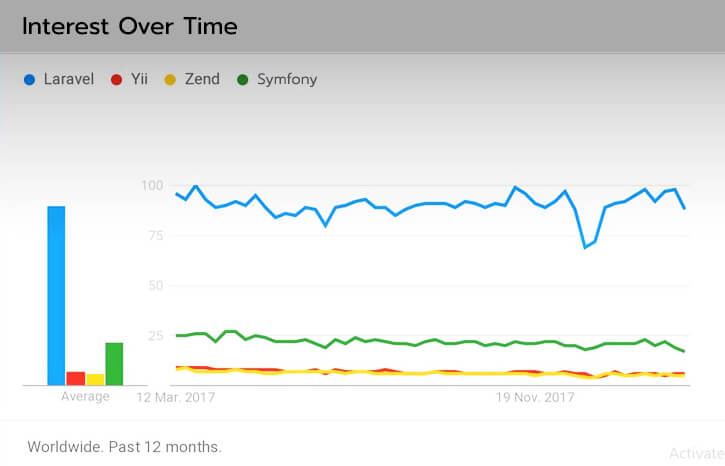
Powerful and robust websites can be created with these frameworks but each serves a different purpose. Here we can compare these frameworks based on the pros and cons on areas like Database Support, Installation, Templating Engine and Rapid Development.
1. Database Support
Yii: Yii supports Database such as MYSQL, Oracle, SQLite, PostgreSQL, Mongo DB and Microsoft Bl.
Pros of Yii: Yii is very fast and easy to learn and has excellent community support along with a variety of extension. Yii is also well documented.
Cons of Yii: There are chances of getting into trouble if you don’t have enough knowledge in technical concepts such as URL routine, Namespaces, Virtual host and MVC.
Zend: Zend supports Database such as IBM DB2, MSSQL, Oracle, PostgreSQL, MYSQL, DBeaver.
Pros of Zend: Zend is widely used, robust and well tested. It is one of the oldest and trusted framework.
Cons of Zend: There are many configuration options which makes them very sophisticated. However, the documentation process is tiresome which makes them slower compared to Laravel.
Laravel: Laravel supports database such as MySQL, Postgress, SQLite, and SQL Server.
Pros of Laravel: Documentation is best when it comes to Laravel, making it easy and simple to learn. Developers can even build their own tools with the help of IoC container. The developer doesn’t need to write the PHP and HTML codes in the same file since Laravel is equipped with MVC framework.
Cons of Laravel: Since Laravel is a lightweight framework, the in-built support will be lesser. Laravel also lags behind in development time as it is not so fast as ruby on rails.
Symfony: When compared with Yii, Zend, and Laravel, Symfony has the best and largest database support such as Apache Jackrabbit, Couch DB, Dynamo DB, Gemfire, Graph DB, MYSQL, NoSQL, Oracle etc…
Pros of Symfony: If used properly, Symfony is fastest among PHP frameworks. They don’t compromise on website security and organize all chunks of web development. Symfony is simple with optimizing propels, reducing the number of queries and scalable.
Cons of Symfony: When comparing its overall structure, Symfony is a bit complicated and needs to be configured.
2. Installation
All Yii, Zend, and Laravel have their own procedures for installation and with the help of a composer, all these frameworks are very easy to install.
3. Templating Engine
Template engines helps the developer to provide better functionality with clean codes. It also offers features like filling the gap left by raw PHP, Automatic HTML escaping and filtering.
Yii: Twig and Smarty are the recommended templating engines for Yii because it doesn’t support any third party templating system.
Zend: Smartly is the only templating engine used in Zend since they deliver clean codes.
Laravel: Laravel is the only framework that uses Blade templating system, making them quick in writing efficient and clean codes in minimum time.
Symfony: Symfony also uses Twig as a templating engine in order to write neat and simple codes.
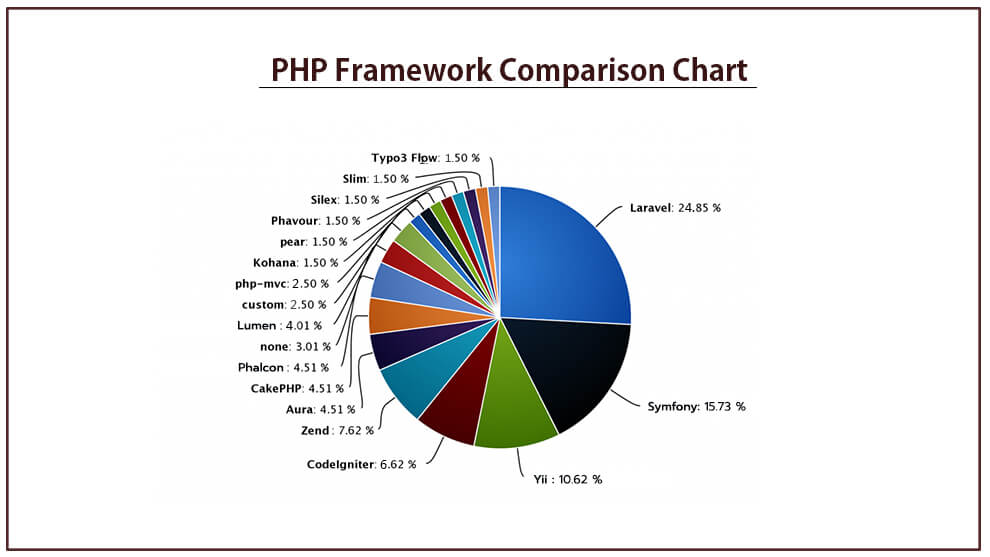
4. Rapid Development
This is the most important factor when analyzed from a company and customer perspective, since launching a website to the market to meet the demand of the customers. Rapid development revolves around developing an application to meet the customer demand by beating the competitors in the segment.
Yii: Yii is pretty good in development as it takes performance to next level and meets business requirements and work efficiently with AJAX and supports caching.
Zend: Zend allows developers to work with independent libraries with which they gain access to processed components without completing the whole framework. Due to this Zend becomes more complicated for beginners.
Laravel: In this segment, Laravel leaves everyone behind as it has the latest strategies and support to execute your plans. It has even got integrated tech support which allows achieving right output in real time.
Symfony: Software components are available for developers making them reliable and fast framework. Symfony enjoys a strong community behind them and therefore is robust.
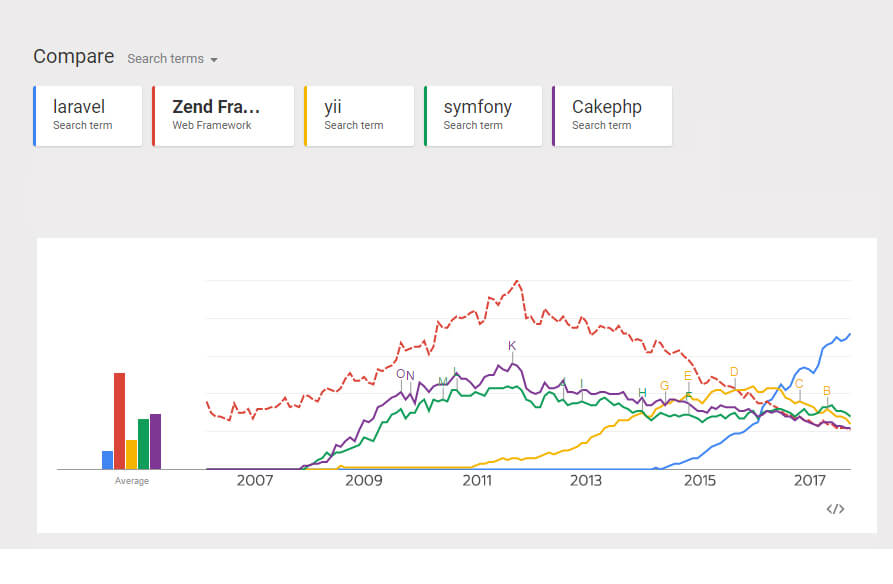
5. Security
Security plays a crucial role in the success and retention of every mobile app. Go for the best framework with the best security features. All the above-mentioned PHP framework supports the common malware such as SQL injections, Cross-Site Scripting and unauthorized authentication.
Yii: Yii is viewed as the most secured amongst the systems. It incorporates the latest security features for verification, approval, passwords, decryption, and encryption etc.
Laravel: Laravel offers many highlights that ensure the security. Moreover, Laravel is equipped with its own authentication system which is quite effective.
Zend: Zend is equipped with BSD license which implies that it protects the content in the site from being breached by any third party tools. It is also equipped with different components to secure the app from XSS attacks and errors.
Symfony: Symfony offers to install a security component that is partitioned into four sub-segments. These segments can be utilized independently. Some of the features include authentication and authorization and protection against Cross-Site Request Forgery and other attacks.
PHP frameworks have minimized the complexity and tasks in web development. After analyzing the above facts, we can definitely say that Laravel is the best player in the market and shows no sign of stopping. Symfony and Yii are also an excellent framework. In case your requirements are for well supported and a modular network, then Symfony should be your choice. Yii has an interactive framework that is robust and secure. But if you are looking for fast prototyping and ease of use, then go with Laravel. Laravel has got all of the little parts which will help you one way or around while developing and after going through the facts, there is no doubt in saying that Laravel is the most famous PHP framework in 2017.
- Agentic AI1
- Android Development3
- Artificial Intelligence37
- Autopay1
- Classified App3
- Custom App Development5
- Digital Transformation12
- Doctor Appointment Booking App14
- Dropshipping1
- Ecommerce Apps40
- Education Apps2
- Fintech-Apps38
- Fitness App4
- Flutter4
- Flutter Apps20
- Food Delivery App5
- Grocery App Development1
- Grocery Apps3
- Health Care10
- IoT2
- Loyalty Programs11
- Matrimony Apps1
- Microsoft1
- Mobile App Maintenance2
- Mobile Apps131
- On Demand Marketplace1
- Product Engineering6
- Progressive Web Apps1
- React Native Apps2
- Saas Application2
- Shopify9
- Software Development3
- Taxi Booking Apps7
- Truck Booking App5
- UI UX Design8
- Uncategorized7
- Web App Development1









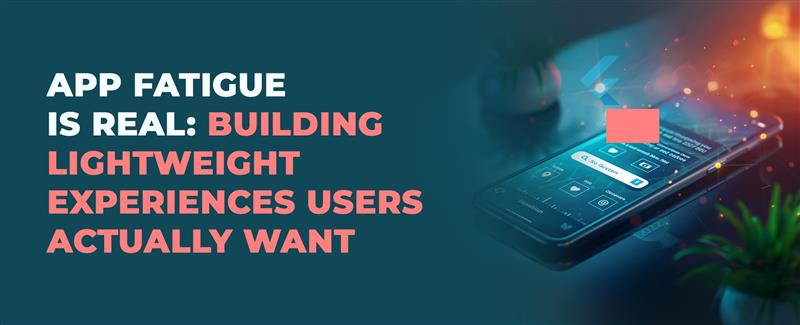









Comments